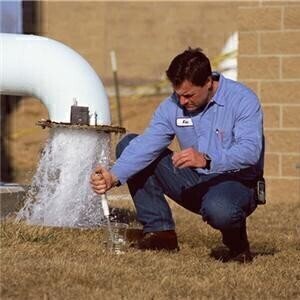Water/Wastewater
Water Quality at COP 27: Developing Early Warning Systems
Nov 04 2022
This year, at the 27th Session of the Conference of Parties to the United Nations’ Framework Convention on Climate Change, or COP27, all aspects of the climate crisis will be considered by official delegates from around the world. Taking place in Sharm El-Sheikh, the Conference will focus on delineating the financial, legal and regulatory structures necessary for the restriction of global warming to temperatures less than 2°C above pre-industrial levels.
Egyptian officials for COP27 have been adamant in reiterating their belief that water is not only the source of life, but a key element in the production of livelihoods around the world. There are, as is widely known, climate change is having a significant impact on global water resources and interacts with broader, cross-cutting questions of development. Given the importance of this discussion, COP27 will devote an entire day to the consideration of water resources in the context of the climate crisis, covering the topics of accessibility, international co-operation and the long-term sustainability of the resource.
One of the most unique sessions is entitled ‘An Earth Observations System for Monitoring and Managing River Basin Systems’, and it promises to promote one of the latest innovations in water monitoring. It will include the presentation of a case study on the Nile River basin using NRGESS, a geospatial, observation-based support system that utilises Earth Observation satellites. In recent years, EO satellites have been put to increasingly fascinating use – most notably, as part of attempts to track the spread of COVID-19. There will be a lot to discuss, owing to the complexities of geospatial intelligence, the difficulties of harnessing rapidly proliferating data-sources and bringing to bear the necessary computational power. The systems aims to be dynamic, scalable, operational and adaptable to further expansion in geospatial, temporal and computational domains. This conversation forms part of a series that explore monitoring solutions for the early warning of floods, droughts and pollution.
In addition, a series of five panel discussions will attempt to delineate tangible solutions to the problem of water security, i.e. the long-term safety and availability of the resource. This is of particular concern to what our regarded as “exposed geographies”, dealing with challenges in water efficiency, desalination, and drainage water recycling. The discussion of monitoring conventions and regulatory protocols will form a central part of these sessions.
Digital Edition
AET 28.3 September 2024
September 2024
Business News - ENVEA announces acquisition of APAQ Group - SICK and Endress+Hauser sign strategic partnership - Efforts to curb gas flaring intensify amid environmental concerns Air Monito...
View all digital editions
Events
Sep 21 2024 Tianjin, China
Meteorological Technology World Expo 2024
Sep 24 2024 Vienna, Austria
Water Africa and East Africa Building & Construction
Sep 24 2024 Kigali, Rwanda
Elmia Water and Wastewater Fair - POSTPONED
Sep 24 2024 Jonkoping, Sweden
Sep 25 2024 Vientiane, Laos



















